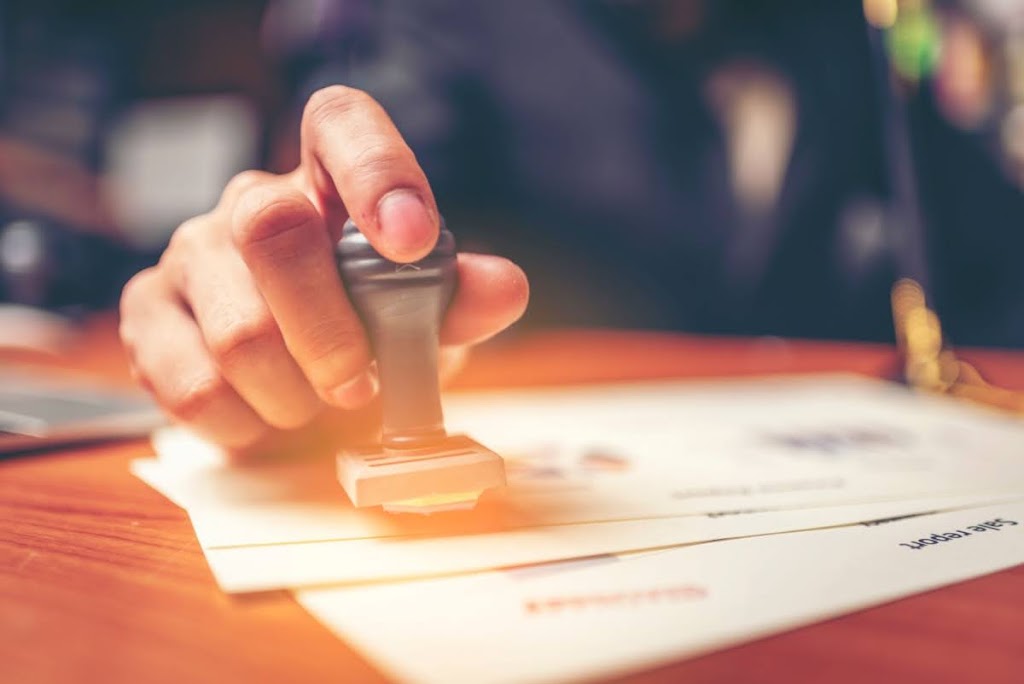
Getting documents notarized protects you from fraud and identity theft. Notarization adds a crucial layer of security by having a notary public verify identities and witness signatures. This process helps prevent forgery and provides proof that signers appeared in person and showed acceptable identification. There are a wide variety of documents that require notarization, including everyday paperwork and major life events. We'll discuss which documents typically require notarization and why this extra step makes such a big difference in your legal and financial dealings.
Real Estate Documents and Property Transfers
Real estate documents are some of the most common paperwork requiring notarization. When you buy or sell property, numerous documents need a notary's seal. Deeds, mortgage documents, and refinancing agreements must be notarized to prove the identity of all parties involved. This helps prevent real estate fraud and protects both buyers and sellers.
Property transfers involve significant financial transactions, so having these documents notarized adds an essential layer of security. The notary public verifies that all document signers are who they claim to be by checking their driver's license or other official identification. This verification step becomes especially important when dealing with financial institutions that require proof of identity for large transactions.
Many real estate documents also require witnesses in addition to notarization. The combination of witnesses and a notary's seal helps establish that the signing occurred voluntarily and without duress. This is particularly relevant for quitclaim deeds, warranty deeds, and other property transfers where clear proof of the grantor's intent matters.
Financial Documents and Power of Attorney
Financial documents frequently need notarization to protect both individuals and institutions from fraud. When you grant someone power of attorney, having the documents notarized proves you personally appeared and willingly gave this authority to another person. This helps prevent unauthorized access to your finances and provides clear evidence of your intentions.
Many financial documents like loan agreements, promissory notes, and pension verifications require notarization. Banks and financial institutions often request notarized documents for major transactions to verify the identity of all parties involved. The notarization process for financial documents includes checking valid photo IDs and recording the transaction in the notary's journal. Some financial institutions now offer remote online notarization options, making it more convenient to get these important documents notarized while maintaining security standards.
Affidavits and Legal Statements
Affidavits serve as sworn statements that courts and government agencies accept as evidence. These legal documents must be notarized because they're essentially written testimony. The notary public watches you sign and swear to the truthfulness of the statement, adding weight to your declaration.
Some common types of affidavits include statements about marriage status, residency, and name changes. Legal counsel often recommends getting affidavits notarized even when not strictly required, as this adds credibility to your statement and may prevent future challenges to its authenticity.
Unusual Documents That May Need Notarization
Beyond the common examples, several unexpected documents sometimes require notarization. Vehicle transfers in certain states need notarized signatures. Permission slips for minors traveling internationally often need notarization to prevent kidnapping and trafficking. Some scholarship applications require notarized statements about financial status or academic achievements.
Certain professional licenses and applications require notarized signatures. This might include medical directives, organ donor forms, or documentation for professional certifications. Even some hobby-related documents, like certain collectible authentications or competition entries, may require notarization.
These less common situations highlight why keeping track of notary requirements matters. While not every document needs notarization, having important documents notarized provides extra security and legal protection.
Sign Your Documents With Products From Notaries Equipment Company
The most critical documents needing notarization include property deeds, powers of attorney, and affidavits, but there are so many more out there. Notaries Equipment Company supplies all the tools notaries need to perform these vital services, including stamps, complete kits, journals, and accessories. By following proper notarization requirements, you'll help protect yourself and others while maintaining the integrity of important legal and financial transactions. Get your products today!
